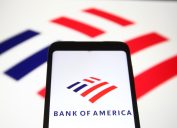Banks Abruptly Closing Accounts Nationwide—Here's How to Protect Your Funds
Take a few precautions to lower your chances of having your account flagged.
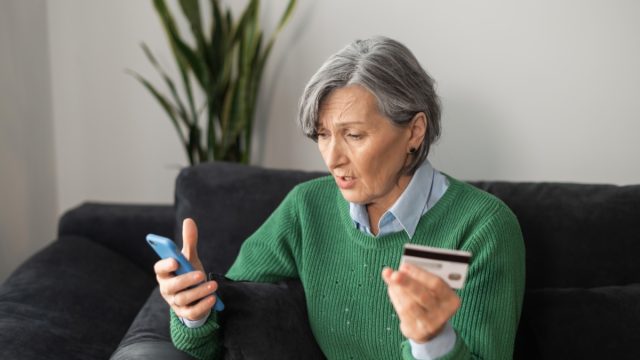
Money matters are always stressful, but we trust our banks to relieve some of the pressure by safely storing our funds. Lately, however, customers have been reporting that their accounts were shut down out of the blue. While many of these individuals are still unsure why they suddenly lost access, there are certain steps you can take to protect your bank account and avoid ending up in the same situation.
Complaints were tied to several of the biggest financial institutions in the country, including JPMorgan Chase, Citi, Bank of America, and U.S. Bank, with customers dumbfounded as to how banks could take this course of action. Believe it or not, according to the U.S. Office of the Comptroller of the Currency (OCC), national banks and federal savings associations can legally close your account "for any reason and without notice."
These sudden closures are sometimes related to inactivity or low usage of the account, the agency says, but The New York Times reported that banks may also close your account if they flag suspicious activity.
Financial institutions are overseen by regulators, using security software to detect potential threats and protect customers from fraud. But because the tech is so "sensitive," per the NYT, innocent people are sometimes punished for no reason. To find out how to prevent this, the newspaper spoke with several "bank insiders" who asked to remain anonymous due to fear of offending their institutions—but who are also tired of hearing about innocent people impacted by closed accounts. Read on for their tips on keeping your account safe.
RELATED: Chase and Citi Customers Say Their Accounts Are Being Closed Without Warning.
Try to follow a pattern with your checking account.

If you have a traditional nine-to-five job, your checking account is more likely to follow a pattern: You get around the same amount via direct deposit a few times a month, and you then use those funds to pay for other things.
According to the NYT, this neat and orderly cycle puts bank employees at ease if they end up reviewing your account transactions. So, if your life doesn't follow this kind of schedule, it's a good idea to create your own pattern.
The outlet notes that the amount you deposit is particularly important when you open your account. While it's typical to start with a large lump sum, you could run into trouble if you do so and are flagged for another reason, like having an arrest record or being employed by a cannabis company. The NYT reported that over 1,000 readers who have had their accounts suddenly closed for these reasons shared their stories.
RELATED: Chase and U.S. Bank Customers Say Their Accounts Are Being Closed Without Warning.
Consider whether your transactions could be deemed "suspicious."
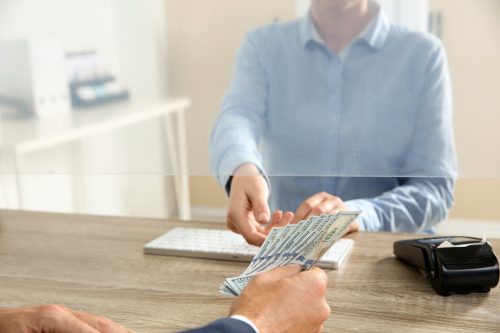
Before you go to make a deposit, think about what kind of deposits you're making—and whether they could potentially look shifty.
The NYT points out that cash can be a problem. A server at a cash-only restaurant, for instance, might make several cash deposits at an ATM after a shift, but a bank might take this as a sign of something illegal, like potential drug dealing.
Moving large amounts of cash can also send up red flags, whether you're depositing or withdrawing it.
In one instance, a TikToker alleged her account was flagged because of her cash deposits, as well as her profession. In a Jan. 17 video, @fantasia.shakes said she received a letter from Chase telling her that her account had been closed and was later told that it was due to a "back office review." When she asked the Chase branch employee if this was because she's a sex worker who deposits cash, she was told, "That's probably the reason."
The TikToker said she was able to get her money back, but worried about this occurring at another bank. In a statement previously provided to Best Life, a spokesperson for JPMorgan Chase said the bank had looked into @fantasia.shakes' video, but was unable to verify her claims.
RELATED: Bank of America and Chase Are Closing Even More Branches—Here's Where.
Keep your bank in the loop.
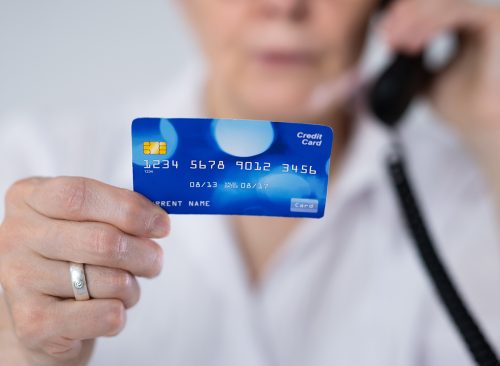
Another way to avoid an abrupt account closure is by keeping your bank informed about your life and any major changes. Experts told the NYT that you should call your bank to let them know you'll be making large cash deposits from the sale of your home or your car, or if you're moving or seeing a major shift in how you're making money.
Experts also recommend responding if and when your bank tries to reach you—just make sure that the call or email is legitimate. (You can do so by calling back on the number listed on your credit or debit card, or signing into your bank account and sending a secure message.)
You should also let them know if you've been a victim of fraud, or if any of your private accounts have been compromised.
Over the summer, Elad Nehorai, a Bank of America customer, posted on X to share that his account was closed without warning or explanation. Eventually, BofA did allow him to transfer his money after he sat at a local bank branch and gained some interest from CBS News. Nehorai posted on X to say that the bank's escalation team told him they would never give him a reason for the account closure.
However, Bank of America later told CBS News that the Federal Bureau of Investigation (FBI) flagged the account after Nehorai reported being a victim of an email scam a week before his account was closed. The outlet did not mention whether Nehorai also flagged this fraud with Bank of America.
Be proactive if your account is closed without warning.
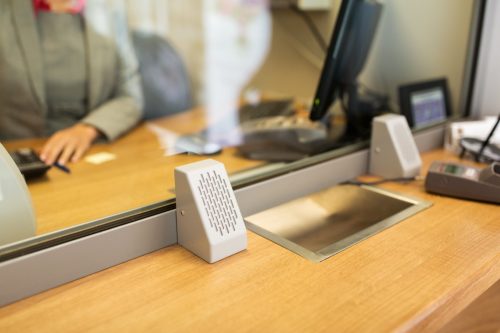
If you end up in this situation, try calling your bank as a first course of action, according to the NYT—but be warned, you might be met with very little explanation and told that your money won't be returned for a few weeks. You can also follow in Nehorai's footsteps and hold out for answers at a local branch.
In general, be persistent. U.S. Bank customer @kaosleader001 detailed his experience with a sudden account closure and several days of going back and forth with the branch. His situation was particularly bizarre: First, he was told that his account was closed because someone called the bank to report his death, and later that someone posed as him to shutter the account.
Thanks to his determination, he was able to get U.S. Bank to open a new account and reimburse his money. There were, however, several bumps along the road, including a hold on his account during the investigation.
RELATED: For more up-to-date information, sign up for our daily newsletter.
Best Life offers the most up-to-date financial information from top experts and the latest news and research, but our content is not meant to be a substitute for professional guidance. When it comes to the money you're spending, saving, or investing, always consult your financial advisor directly.
